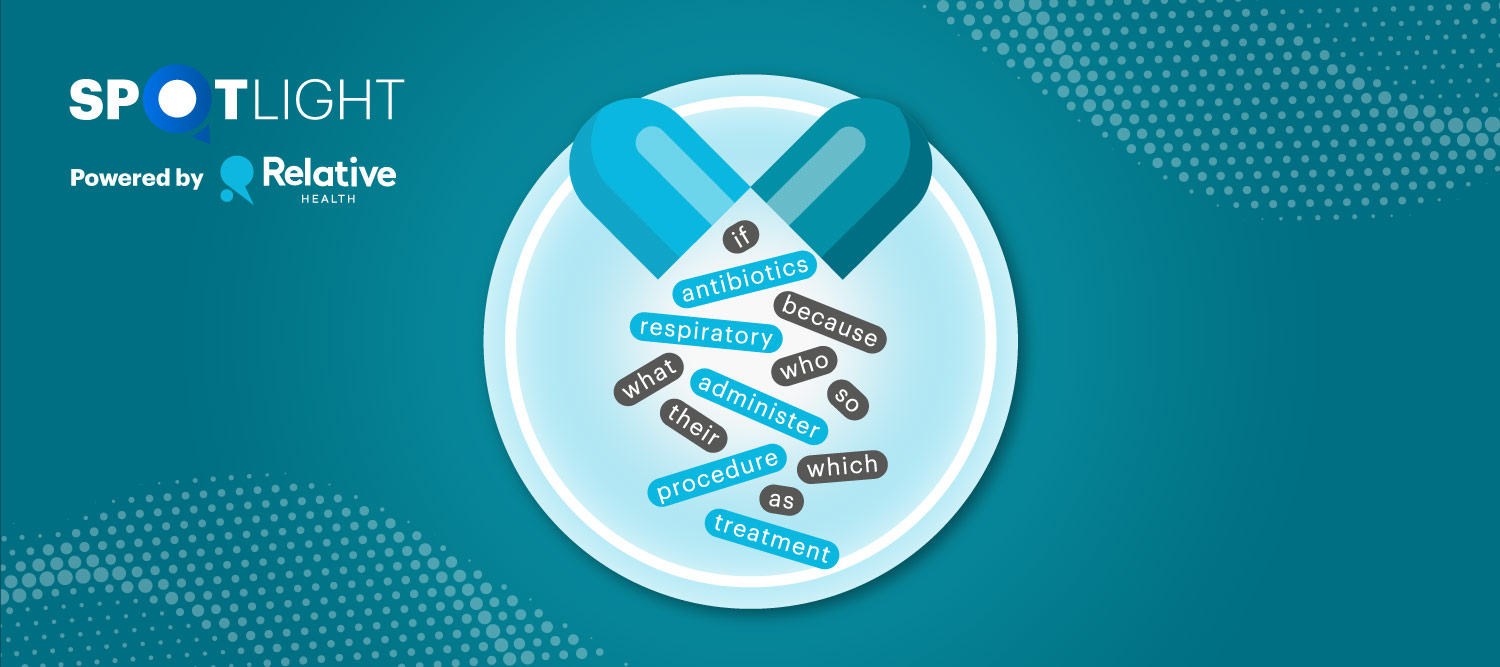Insights experts discuss getting the most from qualitative health data in our upcoming webinar

Qualitative health data has always been a tantalizing prospect for insights teams in the sector. Interrogating text, rather than just numbers, offers unparalleled insight into the why and how in areas ranging from patient satisfaction surveys through to public discussions about certain illnesses.
Text analytics tools driven by AI-powered natural language processing have made it easier to extract value from this data. Agency and brand insight teams across the healthcare, medical, pharmaceutical and biotech sectors can now rapidly process, categorize and mine health data from a variety of previously difficult-to-analyze sources, such as surveys, social data, reviews and patient experience data.
While this is a big first step on the path to qualitative health data enlightenment, text analytics tools are evolving further to give insights professionals even more precision in their analysis. We’re covering what this evolution entails in the latest Relative Insight Spotlight Series webinar.
How Relative Insight Medical changes the rules of engagement
Until now, insights professionals looking to get the most from text data have been restricted to using general text analysis technology. While these tools offer rich insights, a lack of specialized medical coding adds an extra layer of complexity for analysts.
Many topics, words and phrases have very specific meanings when used in a healthcare, medical, pharmaceutical or biotech context. General language models will surface these linguistic features, but often not considering the healthcare context.
Take diabetes as an example. Using general text analysis, words such as ‘sugar’ would be classed as part of ‘nutrition’ or ‘food’. This has meant that insights professionals have had to use workarounds or make interpretations to put these insights into context.
With Relative Insight Medical, this challenge is no more. The first-of-its-kind software sports a medical-specific lexicon which interprets the language of health within its proper context. It features 33 new medical topics which support more precise tagging of medical text data. Using the previous diabetes example, Relative Insight Medical correctly categorizes ‘sugar’ as related to ‘treatments’, removing the need for insights professionals to add further interpretations to data or to use workarounds.
Insights leaders discuss the potential of healthcare-specific text analysis
The theory sounds great, but how can you use Relative Insight Medical practically? To find out, we’ve gathered insights luminaries to explore how you can get the most from health data.
In Introducing Relative Insight Medical: the health kick you’ll stick to, which takes place on Tuesday January 31 at 10am EST/3pm GMT, a selection of healthcare analysis specialists will discuss how you can take your analysis of qualitative health data to the next level.
- Andrew Welp, Analytics Strategy & Insights Sage, Avant Healthcare
- Katy Irving, Global Head of Behavioural Science, HRW Healthcare
- Alban de Courville, Senior Manager, Business Insights, Medtronic
- Lucy Saunders, Director, HRW Healthcare
- Rauri Hadlington, Senior Account Manager, Relative Insight
To kick off the webinar, Katy and Lucy will outline detailed findings on HRW’s report into changing public discourse and sentiment around vaccinations. They’ll explain how the agency used text data to uncover insights into this vital topic.
Following this demonstration of the power of medical text analysis, Andrew and Alban will take part in a discussion with Relative Insight’s very own health specialist: Rauri Hadlington. The trio will talk about the benefits of an AI-created health lexicon, explain how crucial it is to be fluent in medical language both from an insights perspective and offer their own examples of how they’ve put the science behind analyzing qualitative health data into practice.
The session will conclude with the opportunity for you to pick the brains of all our guests. You can submit your questions for this Q&A ahead of time, or simply ask them on the day.
Ensure you don’t miss out on this fascinating examination of all things health by signing up for the webinar.